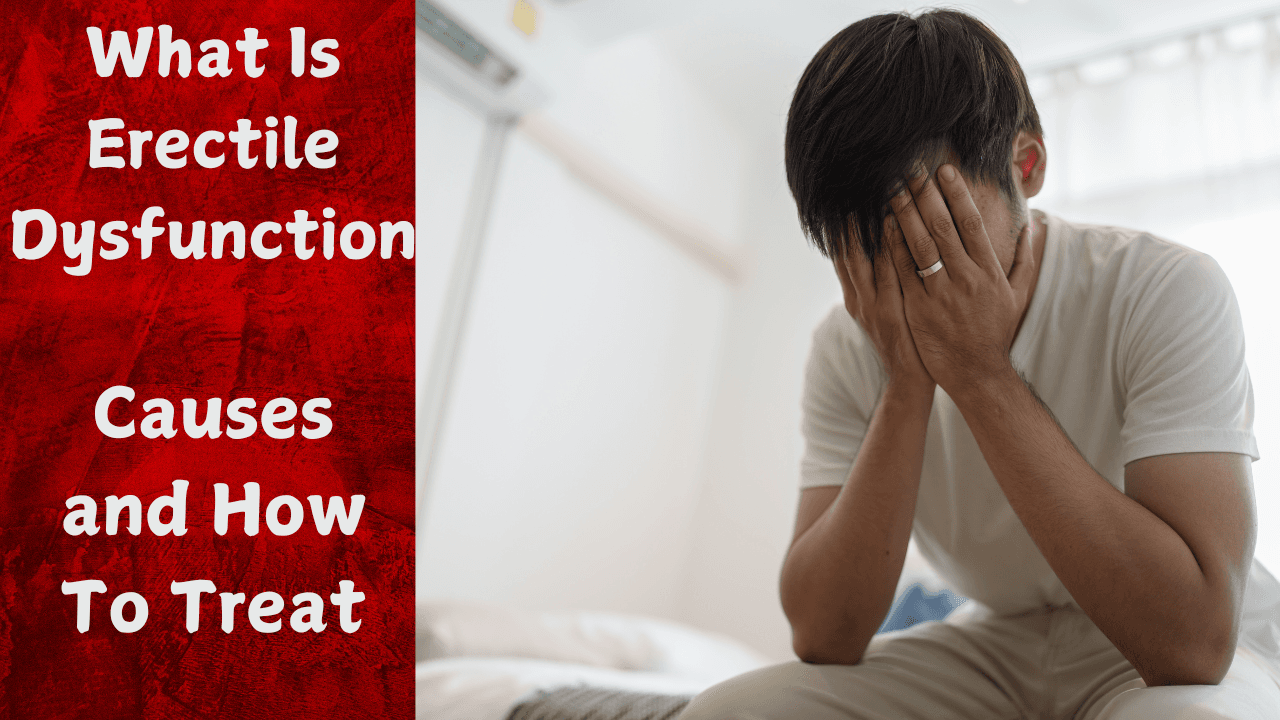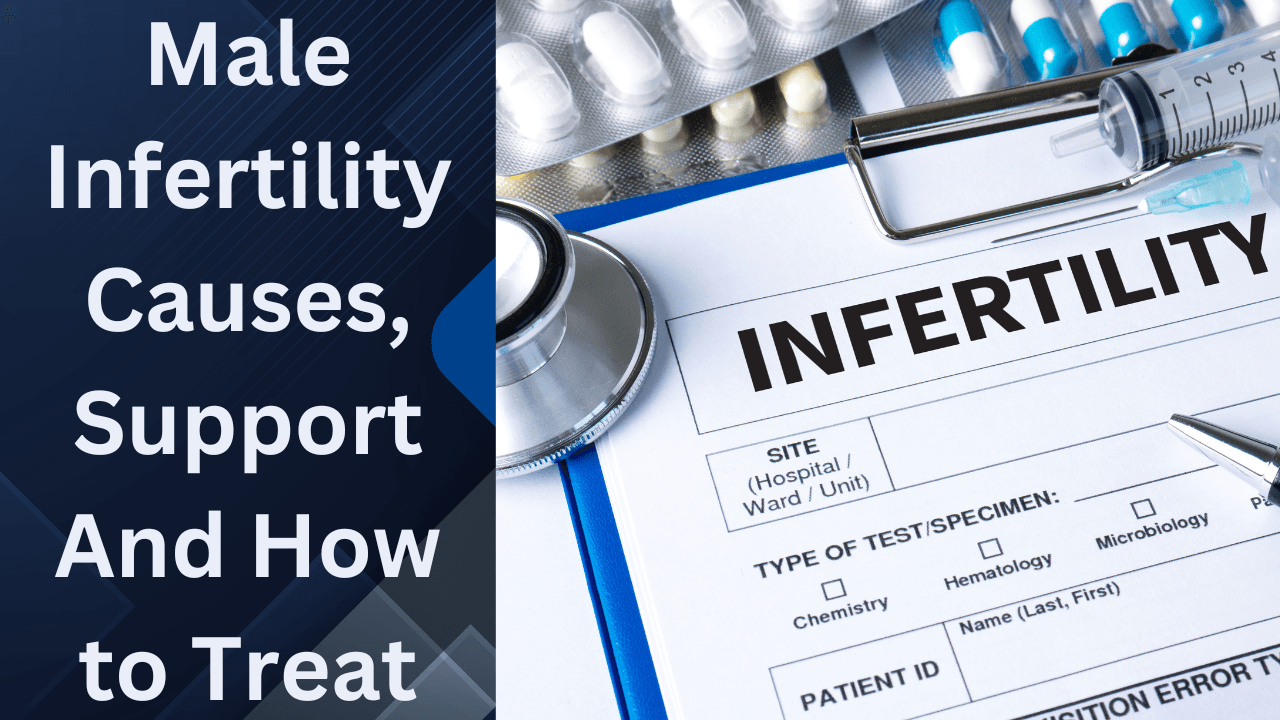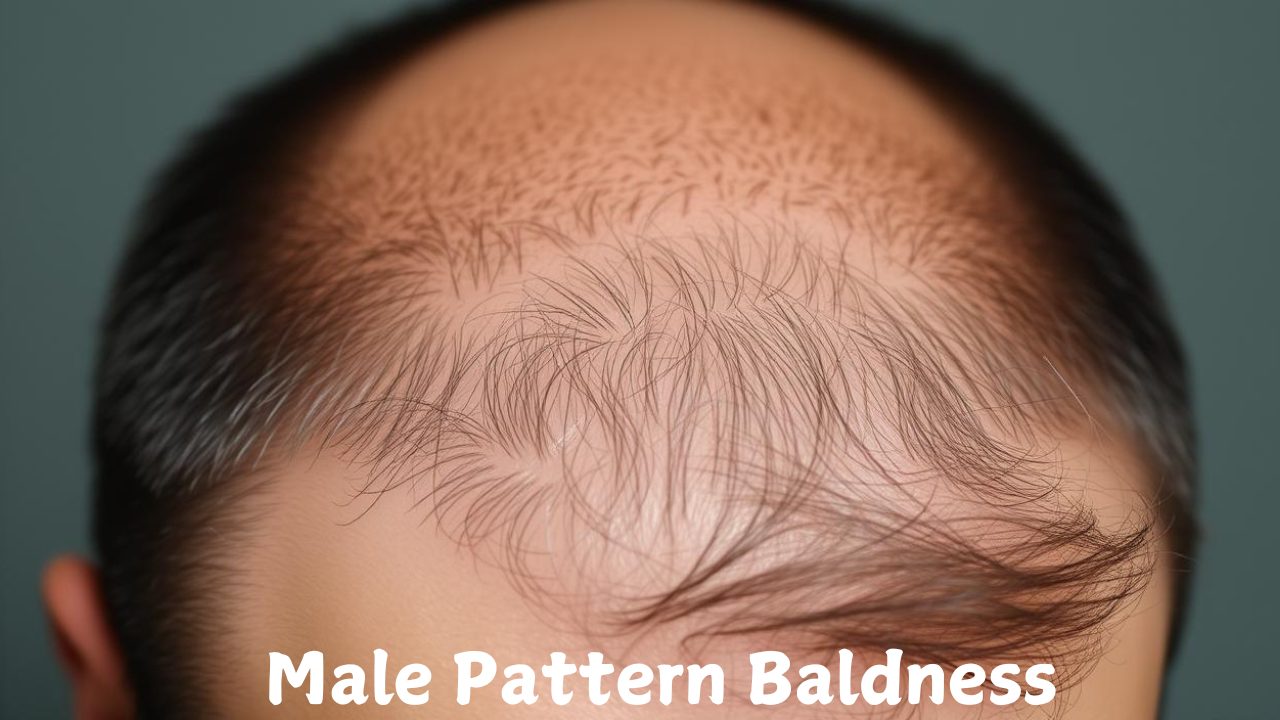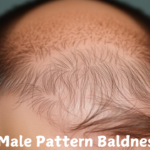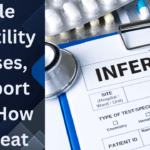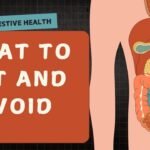Introduction:
Erectile Dysfunction | Do you ever wonder why one might have a bit of a problem with the maintaining of an erection? You’re not alone. Impotence or more commonly referred to as erectile dysfunction is a common problem and this affects millions of heterosmearal men of all ages and background. It is also a route to frustration and anxiety, which hurts self-esteem and destroys relationships.
This paper aims to explore the nature and possible causes of erectile dysfunction to help people to manage this problem. So for the purpose of this article, let’s cover the reason for erectile dysfunction, the different approaches in its treatment, and the ways in which it can be prevented. In this post, you will learn important tips that will help you better deal with Erectile Dysfunction and enhance your sexual well-being.
Understanding Erectile Dysfunction:
What Is Erectile Dysfunction?
Impotence is the impossibility to obtain erection or sustain it sufficiently enough for a proper sexual intercourse. This condition can manifest as:
- Other is erectile dysfunction.
- Loss of erection.
- Reduced sexual desire.
Key Statistics:
About 30 million men in America are facing erectile dysfunction.
Recently it has been estimated that 40% of men suffer from some kind of erectile failure by the time they are forty years and above.
Common Symptoms of ED
Erectile dysfunction has its signs and identifying it makes a great first step to getting help. Common symptoms include:
- Impotence.
It affects a man’s ability to perform some sexual activities that requires him to maintain an erection. - Sexual dysfunction involving either a decrease in sexual desire or sexual dysfunction involving impairment of arousal.
- Mentally instable disorders like anxiety or depression.
Causes of Erectile Dysfunction:
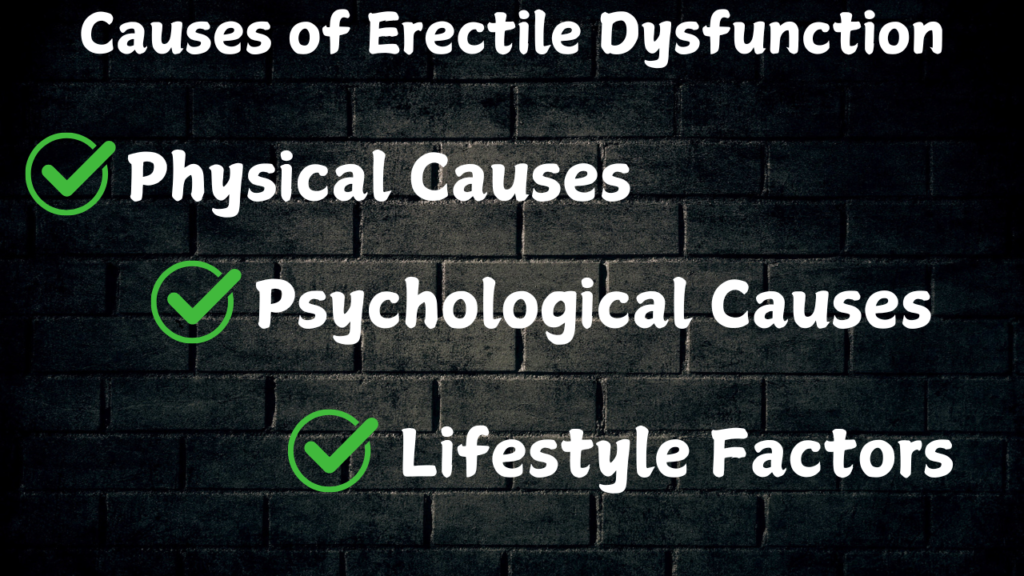
It is always important to know causes of erectile dysfunction since this will determine the sort of treatment to be given. ED can therefore be caused by physical, psychological or lifestyle factors.
Physical Causes:
1. Cardiovascular Issues
- Explanation: Narrowing of the blood vessels is a major cause of erectile dysfunction. High blood pressure, high cholesterol level, atherosclerosis and peripheral artery disease all impair blood supply to the penis.
2. Diabetes
- Explanation:It stated that men which the diabetes are three time more likely to suffer from erectile dysfunction. Diabetes can obviously affect the blood vessels and nerve that are vital in the control of erection.
3. Hormonal Imbalances
- Explanation: Testosterone is known to affect libido and erectile function, and often its levels may go low. There are however hormonal change ageing or any other health complications that may be acausal for the situation.
4. Medications
Some drugs can lead to erectile dysfunction.if you are so busy with work and you are taking all these drugs to keep alert, Common culprits include:
- Antidepressants: May lower libido.
- Blood pressure medications: May locks up circulation.
- Antihistamines: May affect sexual function.
5. Neurological Disorders
Conditions: Erectile dysfunction may be caused by multiple sclerosis, Parkinson’s disease, and stroke in the nerves that are involved with erection.
Psychological Causes:
1. Stress and Anxiety
Explanation: Psychofunctional health has very crucial roles to play in sexual activity. Stress is known to cause performance anxiety this will further worsen the functions of ED.
2. Depression
Explanation: Sex may be affected because depression reduces sexual desire or the ability to perform sexual activity.
3. Relationship Issues
Explanation: Lack of communication with a partner and conflicts with him or her can lead to inadequacy feelings that make erectile dysfunction worse.
Lifestyle Factors:
1. Diet and Exercise
Explanation: Since most of these diseases and conditions are precipitated by poor diet and inadequate exercise programs, they consequently cause erectile dysfunction.
2. Smoking and Alcohol Use
Explanation: It also block the blood vessels while excessive breastfeeding may hinder sexual activities.
3. Age and ED
Overview: One of the risk factors considered is aging. Erectile dysfunction at some level is very normal in most men as they reach the age of 60 because of the normal hormonal changes that occur in the body.
Diagnosing Erectile Dysfunction:
It is very important to assess a patient with erectile dysfunction (ED) in order to understand the underlying cause of this problem and to treat it. Many devices are used by doctors to assess your state and select the therapy plan.
The initial process is still the complete physical examination. Your doctor will assess your health or physical condition, consider your medical records, and possibly take some of your blood for testing. These tests assist in identification of conditions such as heart disease or diabetes that cause this condition.
Your doctor may also give you some psychological tests. It will involve discussion of feelings, relationships, and stress. It helps find out if there are any mental health problems that might be affecting your sex life.
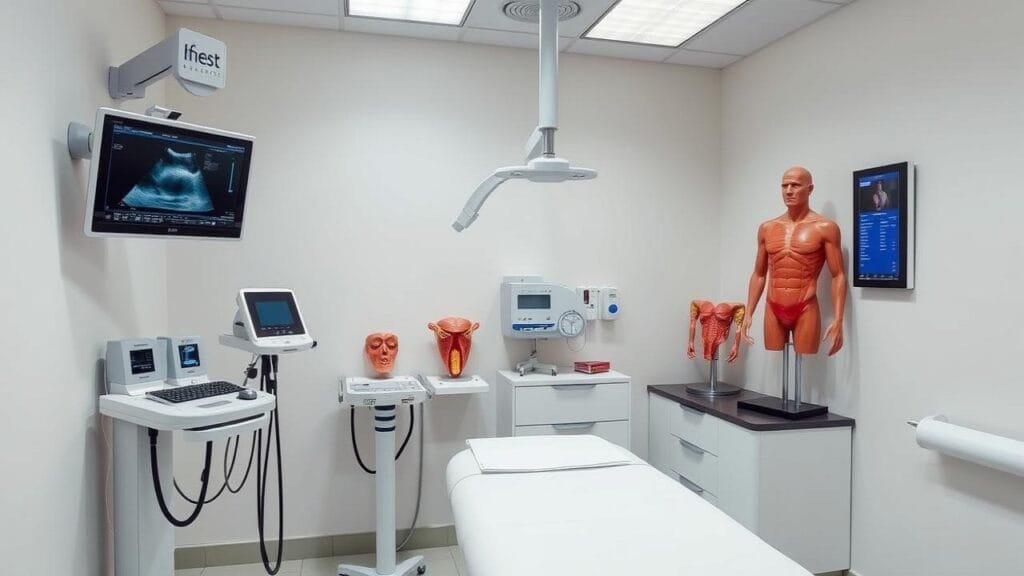
There are more tests to find the cause of your ED:
- Nocturnal penile tumescence (NPT) test: This helps determine if you have erections during your sleep. It assists to determine whether the illness is physical or mental in nature.
- Doppler ultrasound: This imaging test focuses on the blood supply a man’s penis gets. It examines for any dissembler or bubbles in the blood vessels.
- Penile sensory testing: It involves testing the nerves of the penis. It helps find if the problem is neural where there is an issue with nerve supply to the genital area.
These tests assist your doctor to have a better comprehension of your erectile dysfunction. They can therefore be used to develop an appropriate treatment regime that meets the patient’s requirement.
Treatment Options for Erectile Dysfunction:
Erectile dysfunction is not a disease but a symptom and treatable depending on the causes. Here are the main categories of treatment:
Lifestyle Changes:
- Diet: Reduction of energy intake and focusing on a diet comprised of, fruits, vegetables, whole grain products and lean meats.
- Exercise: Exercise promotes blood flow and might help to gain a proper erection.
- Quit Smoking: Many men claim quitting smoking had a positive effect on vascular health and erectile function.
Psychological Counseling:
One issue that individuals can consider going for a therapy is to receive treatment for mental health related problems in order to make their mindset better. Options include:
- Cognitive Behavioral Therapy (CBT): Targets modification of negative thinking.
- Couples therapy: Deals with issues that may have to do with relationship.
Medications:
Oral Medications
- Commonly prescribed medications for ED include:
- Viagra (Sildenafil): Enhance the flow of blood in penis.
- Cialis (Tadalafil): Longer-lasting effects.
- Levitra (Vardenafil): It is like Viagra but may take effect sooner in some cases.
- Side Effects
Side effects that could be noted include head aches, face reddening or flushes and stomach upsets.
Medical Procedures:
- Vacuum Erection Devices
These devices work by making a vacuum that actually sucks blood into the penis so as to produce an erection. - Injections
Ease can also be offered by injections that are made directly into the penis to cause an erection. - Surgical Options
In some instances, for example, for mechanically caused impotence, surgical operations – for example, implantations – may be required.
Alternative Treatments:
- Herbal Remedies
Some men try herbs; however, this requires a doctor’s approval before going for such treatment.
Preventing Erectile Dysfunction:

There are things that one can do to ensure he or she does not develop erectile dysfunction. Here are some tips:
Keep yourself healthy:
The most effective way of dealing with ED is to maintain a healthy life style.• Maintaining a proper diet and exercising in order not to gain excess weight• Reduction of amount of alcohol consumed and avoiding smoking• Stress and mental illnessnction. Here are some tips:
Maintain a Healthy Lifestyle:
- Keeping a healthy lifestyle is key for preventing and managing ED. This means:
- Eating well and exercising regularly to stay at a healthy weight
- Stopping smoking and drinking less alcohol
- Managing stress and dealing with mental health issues
Manage Stress:
- There are easier ways of stressing; like for instance engaging in Yoga, meditation or even mindfulness.
Regular Health Check-Ups:
If you have signs of erectile dysfunction, get to a doctor as early as possible. They can determine what is wrong and design how they are going to fix it. This could comprise drugs, treatment or other actions.
It is therefore important to learn the different measures to use in order to prevent and manage erectile dysfunction so as to improve ones sexual health. Remember, you’re not alone. But I want you to know that there are treatments that will assist you.
Conclusion:
Erectile dysfunction is multifaceted in nature and impacts a man’s sexual and general health. Knowledge of solutions, prevention, signs and carriage of this illness is crucial. It also assists people to take measures to enhance their sexual well being.
Erectile dysfunction can be controlled in following methods. This also involves taking care of physical and psychological aspects and making changes to their life style. The following steps can also assist to overcome erectile dysfunction problems.
If you have some problems with erection or just want to maintain a good sexual activity, consult a doctor. You can obtain individual consultation and develop an appropriate therapeutic strategy. By following this plan you will be getting regain control over your how to treat erectile dysfunction health and life.
Just a reminder, erectile dysfunction is nothing but common. If you would approach sex in the right manner, you do not need to have any problem that would prevent you from having a good sex life.
It is important to familiarize with erectile dysfunction definition, signs, and management. This knowledge enables you as a man to fix any erectile dysfunction problems that you may be having and get back your sexual health.
It’s okay to accept the process of learning and growing how to treat erectile dysfunction and be hopeful. The key areas can themselves provide numerous solutions and information to help you.

What is Erectile Dysfunction?
Erectile dysfunction is a sexual health problem. It affects a man’s ability to get an erection for sex or to sustain an erection during sex. This can occur sometimes or all the time.
What are the Symptoms and Signs of Erectile Dysfunction?
Symptoms of erectile dysfunction are for instance; difficulty in attaining erective capability. They also encompass maintaining of an erection during sexual activity or having a reduced sexual desire.
What are the Causes of Erectile Dysfunction?
Erectile dysfunction can be caused by many things. There are physical factors as well as psychological factors involved in this case. Depending on the type, they can be caused by heart problems, diabetes, hormonal imbalances, certain drugs, and neuromuscular disorders or psychological factors such as stress, anxiety or depression.
How is Erectile Dysfunction Diagnosed?
Erectile dysfunction is diagnosed after conducting a check-up as well as talking to the man in question. They might also do blood tests and so on any other tests that they may feel is necessary to check psychological status of the person.
What are the Treatment Options for Erectile Dysfunction?
The treatments for erectile dysfunction are medications taken orally, injections into the penis, and vacuum devices. Some causes are best treated in a particular way, while others are best treated in another type of way, and what you prefer as well.
How Can I Prevent and Manage Erectile Dysfunction?
Lifestyle changes recommended to help combat erectile dysfunction are: It should be good to health, to take medications in time if needed, and to address a doctor if the case is severe. This comprises of being physical active, choosing health meals, kicking the bucket on smoking and self-treating for mental issues.
